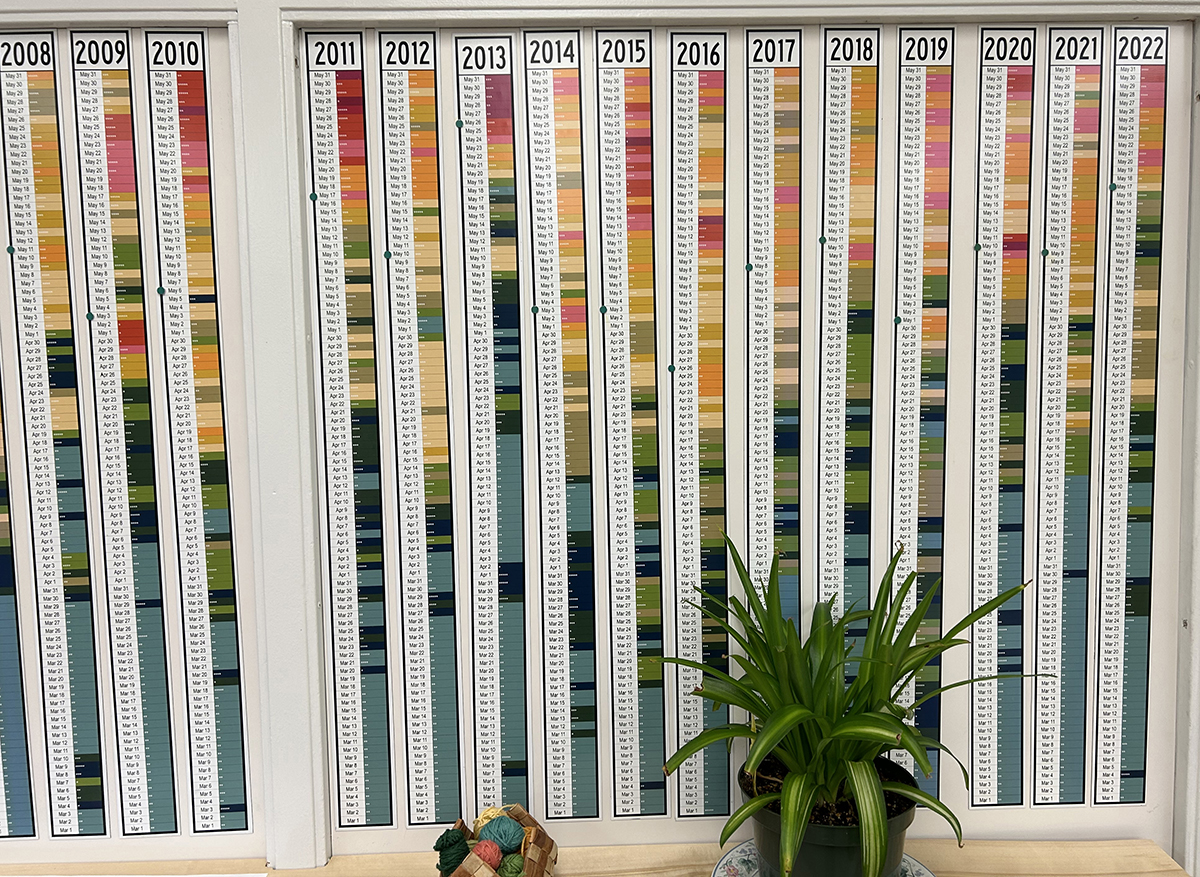When is green-up? It's going to be late this year, and so is the birch sap run
Julie Stricker
907-474-5406
April 26, 2023

A chart on the wall at the OneTree Alaska classroom shows the temperature progression for each season between March 1 and May 31.
Cold weather this April is delaying two cherished milestones in Interior Alaska: the start of the birch sap run and green-up.
Below-normal temperatures are likely to continue for a week or more, according to Rick Thoman, a climate specialist at the Â鶹ąŮÍř Fairbanks.
“We’ve got green-up pushed back to quite late,” he said in mid-April. “We’re now looking at the 50% likelihood for green-up is now May 11-15, and the long-term average is May 8.”
That also means the birch sap isn’t likely to start running until late in April, Thoman said.
“The weather models continue pushing back any big warm-up, and it now looks nearly certain that we’re looking at very late sap flow/green-up,” said Thoman, who works at the Alaska Center for Climate Assessment and Policy, part of UAF's International Arctic Â鶹ąŮÍř Center.
Thoman added that this April’s temperatures are “historic-level cold.”
Knowing when the sap is likely to start running is important for people who tap birch trees for the sweet liquid, which can be distilled into an even sweeter syrup, said Jan Dawe, who leads OneTree Alaska, part of the UAF Institute of Agriculture, Natural Resources and Extension. Tapping too early results in the tree sealing over the tap hole, blocking sap flow, and tapping too late misses the first days of sweet, clear sap.
Thoman and Dawe have been working together to find a formula that will allow them to predict sap flow and green-up — which also heralds the start of the pollen season. Starting March 1, Dawe starts to track the temperature. She adds up the number of degrees by which the maximum temperature exceeds 32 degrees Fahrenheit each day, called the accumulated heat sum. Sap usually starts running by the time the tally reaches 225° AHS, depending on the location of the tree. OneTree Alaska issues a “sap watch” by 175 degrees AHS and recommends people on south-facing slopes tap up then.
So far this season, the tally reached 70 degrees AHS on April 4 and stalled as cold weather moved in and refused to budge, Dawe said. On April 17, it had inched up to 85.
That cold weather is also delaying green-up. Since 1974, observers on UAF's West Ridge have observed the trees on Chena Ridge to judge when green-up occurs. Former UAF biosciences librarian Jim Anderson defined green-up as the day birch and aspen leaves open just enough to produce “a faint but distinct green flush through the forest canopy." Thoman notes that, as in forecasting weather, there’s a good deal of uncertainty weeks out, and he’ll have a better idea in early May of when green-up is likely to happen.
“Of course, the other thing that is coming after green-up, within a day or two, is we have a pollen explosion,” Thoman said. “For people with sensitivities, that timing is certainly important to know.”


